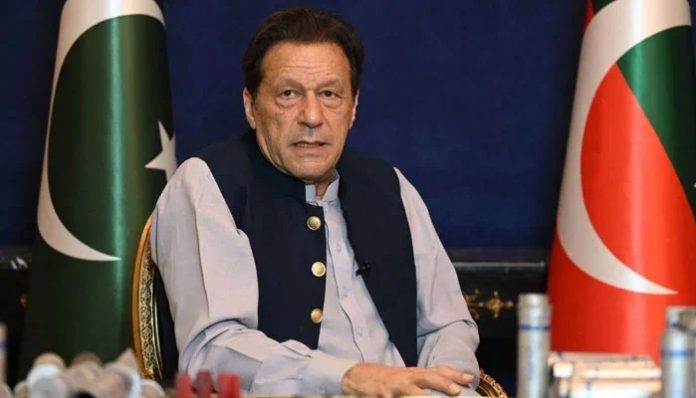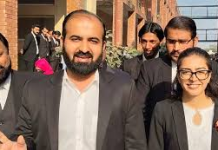39 lawmakers contested Feb 8 elections as independent candidates and later joined SIC
Farrukh Shehzad/DNA
ISLAMABAD: The Election Commission of Pakistan (ECP) on Thursday declared 39 lawmakers — who contested the February 8 elections as independent candidates and later joined the Sunni Ittehad Council (SIC) — as members of the Pakistan Tehreek-e-Insaf (PTI) in line with the Supreme Court’s July 12 verdict in reserved seats case.
The ECP uploaded the notification on its website to declare 39 NA lawmakers as the former ruling party’s members who had shown their affiliation with the PTI in their nomination papers for the February 8 nationwide polls.
The decision was taken in a key session held under the chair of the Chief Election Commissioner (CEC) Sikandar Sultan Raja today in which they reached a conclusion to upload the notification of 39 lawmakers’ affiliation with the Imran-founded party.
Asad Qaiser, Sher Afzal Khan, Latif Khan Khosa, Zartarj Gul, Shandana Gulzar Khan, Zain Hussain Qureshi, Malik Aamir Dogar, Ali Afzal Sahi, Ali Khan Jadoon, and others were among the notified PTI MNAs.
The PTI MNAs who have been notified by the ECP today were those who had shown their party affiliation with the Imran-founded party in their nomination papers before the 2024 general elections.
Having been deprived of its election symbol, the PTI’s candidates contested the February 8 elections as independents. However, these independents were directed by the party to join the Sunni Ittehad Council (SIC) to be eligible for the reserved seats.
After winning the most seats in the general polls earlier this year, PTI was denied reserved seats by the ECP while its decision was also upheld by the Peshawar High Court (PHC), citing the party’s inability to submit list of candidates for reserved seats in the stipulated time.
The apex court had on July 12 ruled that PTI was and is a political party that won general seats in the national and provincial assemblies in the February 8 elections, thus, is entitled to reserved seats.
The SC full bench headed by Chief Justice of Pakistan (CJP) Qazi Faez Isa, by a majority of 8, set aside the Peshawar High Court’s judgment of March 25 and declared the ECP order of March 1 to be ultra vires the Constitution, without lawful authority and of no legal effect.
Following the SC directives, the electoral body held multiple sessions to deliberate on the verdict.
Regarding the independent candidates’ issue, the ECP stated in a session last week that 39 candidates of the embattled party had shown their affiliation with the PTI in their nomination papers.
However, 41 candidates who had been declared independents hadn’t mentioned PTI in their nomination papers neither they disclosed their affiliation with the party nor submitted the ticket of any party, it added.
“Therefore, the ROs allowed them to contest the election as independents. Later, these MNAs voluntarily joined the Sunni Etihad Council (SIC) within three days as required by law after winning the election,” the statement read.
The party appealed the decision of the Election Commission and the PHC in the Supreme Court, but it was rejected.
It further added that the PTI was neither a petitioner in the case against the ECP in the apex court nor the PHC.
It is noteworthy to mention here that the ruling parties, Pakistan Muslim League-Nawaz (PML-N) and the Pakistan Peoples Party (PPP), have filed a review petition in the apex court against the reserved seats’ verdict, which came as an unexpected legal victory for the main opposition party.
This not only paved the way for the PTI’s return to parliament, which was kicked out of the February 8 polls owing to the ECP’s December 2023 ruling but has also increased the pressure on the coalition alliance by changing the composition of the National Assembly.

















